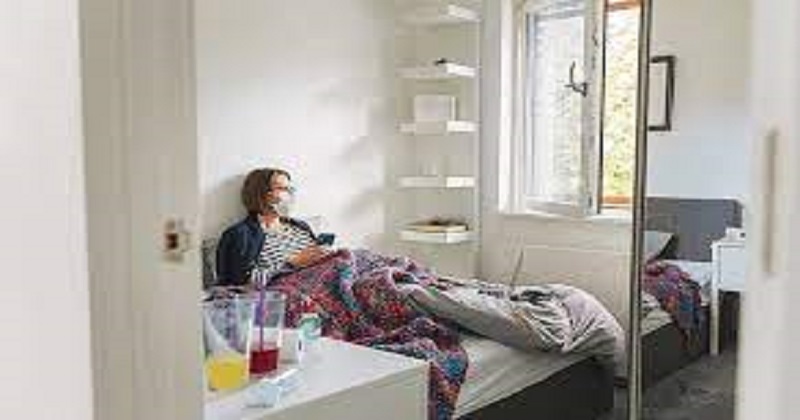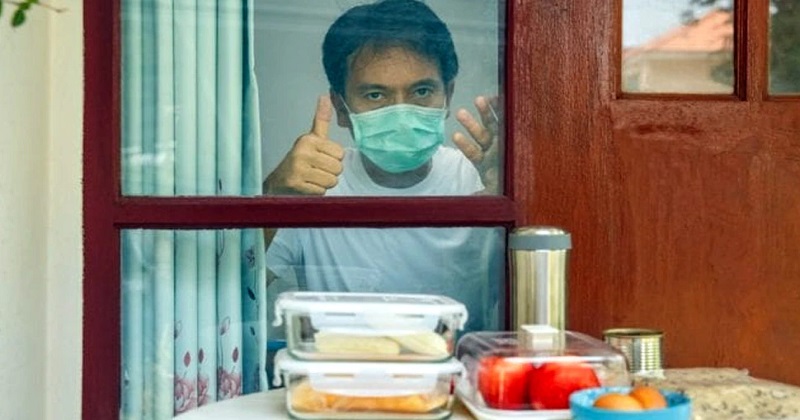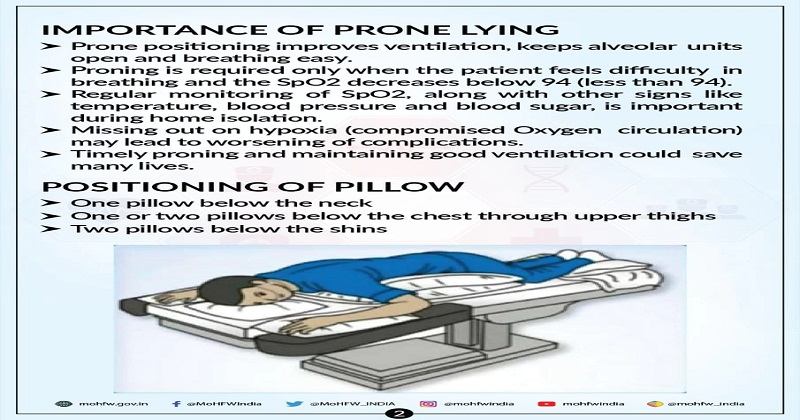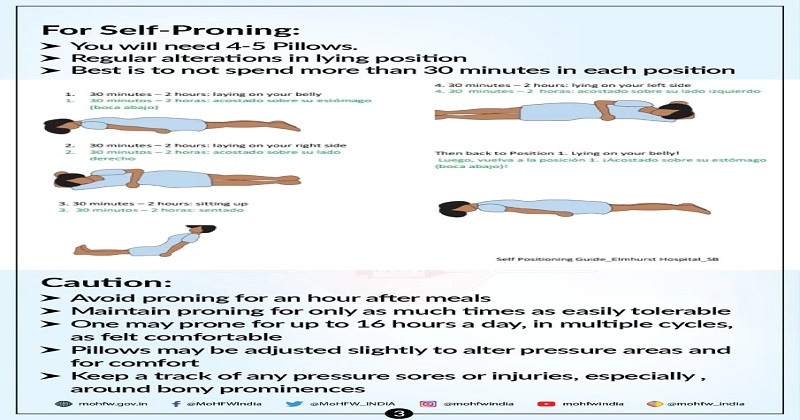
There’s chroma and sobbing across the nation with Covid-19 patients and families advancing urgent requests for hospital beds, oxygen, or necessary medicines. Still, doctors state that not all Covid-19 patients require admission, and care can be carried at home. On Thursday, the Union Health Ministry advised recumbent lying for Covid-19 patients during home isolation, stating it increases ventilation, keeps alveolar units open, and makes breathing effortless. The novel coronavirus attacks the respiratory system. With many patients informing shortness of breath and lower oxygen levels, they try to get admitted to the hospital. But according to Dr. Rudra of Rejoice Hospital, not all Covid-19 patients require hospital admission.

He says, “Patients with mild symptoms can be treated at home as a Covid positive report does not mean one would need a ventilator of hospital facilities. This disease takes 15 days. The initial mild symptoms stay for five days and then there are moderate symptoms and then if the condition deteriorates, it can become serious,” said Dr. Rudra. The doctor says that a patient only arrives at the critical stage if he already has a serious illness or has been careless at the starting of the Covid-19 infection.
Home isolation
Those with home isolation should stay in a room where the bath is attached and well aerated. Room with AC should be avoided. Visitors should be completely avoided. Room isolation should be practiced. So do not leave the room. Hands should be washed regularly. Or if the patient goes outside the room, the touched surfaces should be disinfected. Everyone in the house should wear a mask. It is a good idea to wear two masks when reporting a genetically modified virus. Patient caregivers should wear an N95 mask.
Do not transfer goods
Items such as food, TV remote, and phone should not be shared with the sick. It is better to wash the dishes and clothes worn by them. The utensil, clothes, table, chair, and bathroom used by the person under observation should be cleaned with bleaching solution (3 teaspoons of bleaching powder in 1 liter of water).
Water and food are very important
Those who stay at home should drink plenty of water. Avoid cold water and food in the fridge. Eat hot and nutritious foods. If possible, gargle with warm water several times a day. Sleep is very important. The Department of Health says you should get at least 8 hours of sleep.
Self-monitoring is important
Those who are in isolation at home should monitor themselves daily. This will greatly help in the early detection and availability of expert treatment in case of complications. The pulse oximeter is best kept at home. The amount of oxygen, pulse, sleep, and other symptoms shown by the pulse oxygen meter should be recorded in a book daily. Covid is a serious condition caused by a decrease in the level of oxygen in the blood. The average oxygen level in a person’s body is above 96. If the oxygen level is below 94 or the pulse is above 90, the health worker should be informed immediately. After 6 minutes of walking, the level of oxygen in the blood should be at least 3% lower than before. Those with minor symptoms can also seek treatment through E Sanjeevani, the health department said in a press release.

Danger signs should be identified
Hazard factors include shortness of breath, chest pain, palpitations, excessive fatigue, excessive sleep, blood clots in the sputum, high fever, fainting, or fainting. Many of these problems are generated by a lack of oxygen to the brain. In this case, the health department says that you should lie on your back until the ambulance arrives without any panic. “With such precautions, we can overcome this spread as soon as possible,” he said. Medical experts say the pronal breathing exercise can bring immediate relief and help the oxygen saturation in your body. Along with this, oxygen should be monitored constantly with the help of a pulse oximeter.

Also read; 52 passengers of Indian airline Vistara tested positive for coronavirus after landing!!!
1. The first and foremost step is to make a Covid calendar to monitor yourself for the next 15 days.
2. In this calendar, you note your fever, blood pressure, sugar level, SpO2 levels, which is the amount of oxygen in the body. Make sure to check the oxygen saturation at least three times a day.
3. If your oxygen saturation dips below 94, start pronal breathing by taking long breaths while lying on your stomach.
4. Pronal breathing method: Take three pillows. Lie on your stomach. Keep one pillow below your neck, one under your stomach, and another under both legs, and then take deep breaths.
5. It is recommended that you do pronal breathing for at least 30 minutes a day. With pronal breathing, oxygen saturation in the body can even go from 88 to 95.
6. Consult doctors over the phone for medicines that can be taken in case of home quarantine apart from other diagnostics that may have to be done.

Post Your Comments